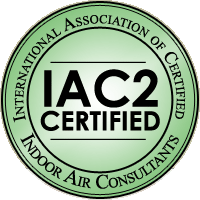Mold Inspections, Mold Testing West Palm Beach
What is mold and why should I be concerned? Mold is a naturally occurring organism and it's everywhere! Mold is natures way of recycling and can be toxic. Mold is part of the fungi kingdom which includes microscopic organisms such as, yeasts, many kinds of mold and much larger organisms such as mushrooms. Mold is a benefit to mankind as much as it is a detriment. Without mold we wouldn't have things like beer, wine, cheese, bread and one of our most valuable resources, crude oil. Mold is also used to synthesize medicines such as penicillin and other antibiotics which have saved countless lives. Mold in the home is another matter altogether.
Mold in the home can cause major air quality issues and symptoms that can range from...
-
Nasal and sinus congestion, runny nose
-
Eye irritation, such as itchy, red, watery eyes
-
Respiratory problems, such as wheezing and difficulty breathing, chest tightness
-
Cough
-
Throat irritation
-
Skin irritation, such as a rash
-
Headache
-
Sneezing
-
And even death.
There is even data in the medical community that suggests a link between mold and disorders such as depression and ADHD although at this time these are only theories derived from patient observations . In my own personal experiences while being involved in thousands of mold assessments and mold testing I have noted similar symptoms shortly after inspecting a moldy home.
Not only can mold cause major health concerns it can also cause major damage to your home. As previously mentioned mold is natures way of recycling. It breaks down organic material by a process called The most costly damage from mold is usually damage done to personal belongings that cannot be properly cleaned and have to be thrown out. Most items can be cleaned or treated but usually at exorbitant costs which do not make financial sense unless the item in question is a family heirloom. Physical damage to a home is also possible if moisture within the structural envelope is not dried Thoroughly and in a timely fashion.
William Scott is a top home inspector in the West Palm Beach, Florida Home Inspectors guide on Inspectopia.com.
Mold Testing Reports Provided By Pro-Lab Laboatories.
PRO-LAB Laboratories - Mold Radon Lead Water Testing - PRO-LAB is one of the leading providers of environmental testing services in the world.
























